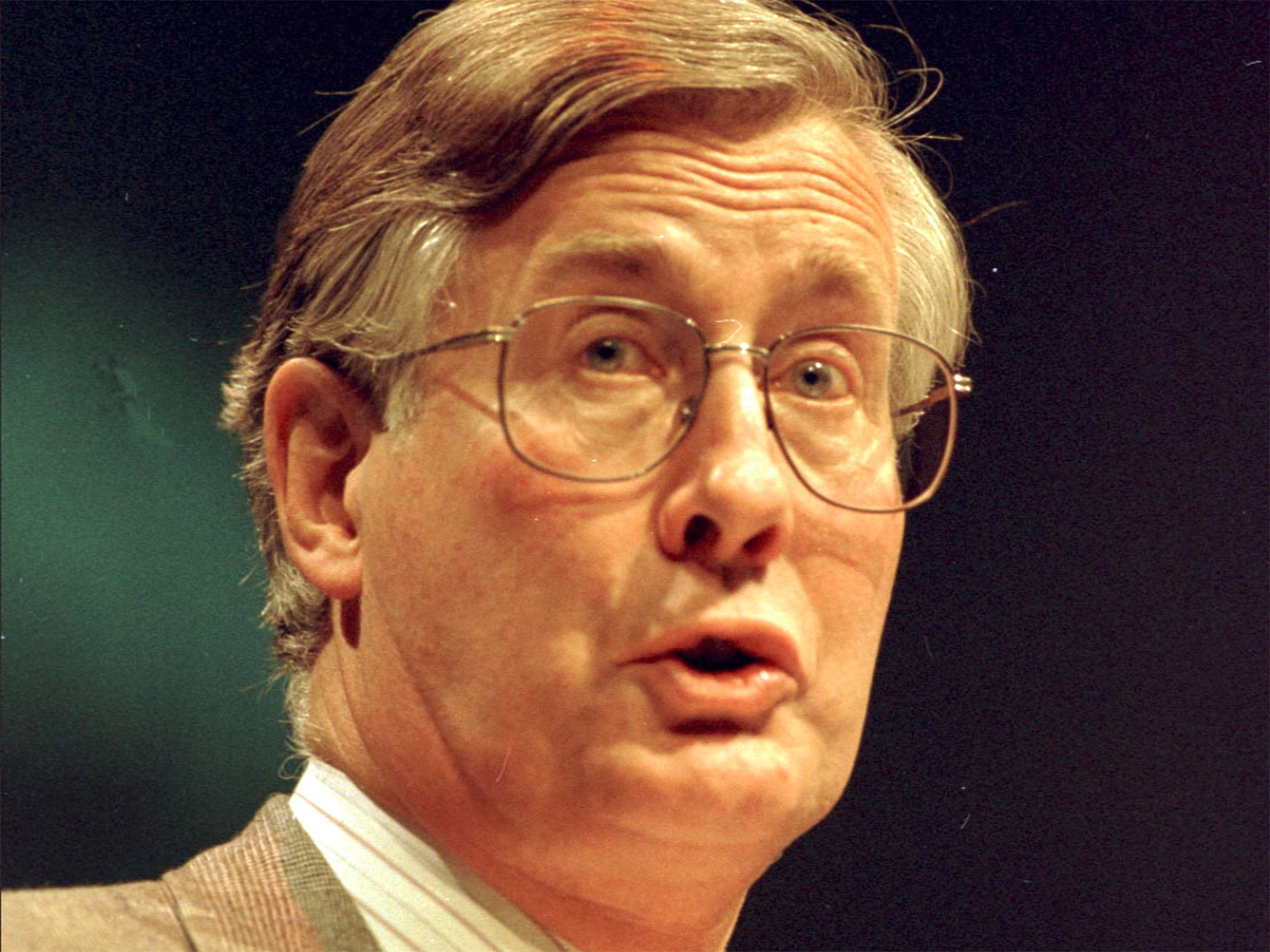Michael Meacher: Politician who served as environment minister and helped keep Labour's socialist soul alive
Meacher's status as one of the left's leading lights was cemented when he appeared as himself in the acme of 1980s TV drama, the nuclear conspiracy thriller Edge of Darkness

Along with the likes of Tony Benn, Jeremy Corbyn, John McDonnell and Diane Abbott, Michael Meacher, who has died at the age of 75 after a short illness, kept the socialist soul of the Labour Party alive for years. Although he was elected by MPs to the Shadow Cabinet every year from 1983 until Labour's return to power in 1997, and was even spoken of by some as a future Party leader, he was too left-wing for Tony Blair's brave New Labour world. Instead he took on the environment brief – a non-Cabinet post – giving strong support for renewable energy and organic agriculture and steering through the Right to Roam legislation.
He was born in 1939 in Hemel Hempstead, the son of an accountant and stockbroker. He was educated at Berkhamsted School, a boarding school, then read classics at New College, Oxford and gained a Diploma in Social Administration from London School of Economics.
After stints as a research fellow in social gerontology at Essex University and as a lecturer in social administration at LSE, he was elected to Parliament for Oldham West in 1970 (it became Oldham West and Royton in 1997). When he first arrived in the House of Commons he hugely impressed Bob Mellish, the Chief Whip, and ministers, with his command of social statistics – "which he deployed extremely effectively at Question Time," according to Tam Dalyell. He served as a junior minister under Harold Wilson and James Callaghan, first at the Department of Industry, then at the DHSS and the Department of Trade. He became a staunch ally of Tony Benn – Neil Kinnock, who couldn't bear him, once described him as Benn's "vicar on earth" – and in 1983 he lost to Roy Hattersley in the deputy leadership election. When Kinnock was elected leader, he declared that when he became Prime Minister, Meacher would get nowhere near his Cabinet.
Meacher's status as one of the left's leading lights was cemented when he appeared as himself in the acme of 1980s TV drama, the nuclear conspiracy thriller Edge of Darkness. In 1988, he unsuccessfully sued the Observer journalist Alan Watkins, who had questioned his background, writing, "Mr Meacher likes to claim that he is the son of an agricultural labourer, though I understand that his father was an accountant who retired to work on the family farm because the life suited him better."
Despite the hostility of the Blair administration, Meacher's environmental stint brought him the reputation of being able to stay on top of a complex brief, and he did move slightly towards the centre ground. He also became known as a skilled negotiator, helping John Prescott in securing the Kyoto agreement to limit carbon emissions in 1997.
But he was sacked in 2003, leaving him free to take on the Government, especially over the invasion of Iraq, even though he had accepted intelligence reports about Saddam's chemical weapons and had voted in favour of military action. "That is the biggest political mistake I've made in my life," he later said.
He was accused of succouring conspiracy theorists when he claimed that the terrorist attacks of 9/11 "offered an extremely convenient pretext" for the subsequent warmongering. Questioned, he said, "I am not a conspiracy theorist." But he wondered why there had been an apparent delay in scrambling fighter jets, and added, "I do believe the American people, and particularly the widows of those killed, are entitled to answers to these questions."
In 2007 he challenged Gordon Brown for the party leadership but withdrew to allow a clear run for John McDonnell, who was still unable to muster the required 44 backers. Five years later he expressed a measure of regret for any support he had given the government during the Blair era. "I underestimated how far he was going to take us," he said.
Meacher was caught up in the MPs' expenses scandal when it was found that he had moved out of his home in Oldham to rent a new property. He had form in this respect: in 1999 he was accused of hypocrisy when he called for a ban on owning a second home. At the time he had three properties of his own.
His enmity towards New Labour never faded, only increasing when he returned to the back benches. He was one of the first Labour MPs to start a blog, and it was predictably biting; last month he used it to suggest that Lord Mandelson should be expelled from the Party for opposing Jeremy Corbyn after he was elected leader. "When the party has spoken with such unprecedented decisiveness, such behaviour is coming close to traitorous," he wrote.
He also called for a more conciliatory policy in the Middle East, attempts to tackle income inequality and a greater commitment to reducing energy use. His last entry, dated 3 October, was typically mordant. It was headlined, somewhat hopefully, "Osborne stirs up more sh*t in which to bury himself". Meacher's first wife Molly, Baroness Meacher, is a crossbencher in the House of Lords.
CHRIS MAUME
Michael Hugh Meacher, politician: born Hemel Hempstead 4 November 1939; MP for Oldham West 1970-97, for Oldham West and Royton 1997-); married 1962 Molly Reid, later Baroness Meacher (divorced 1987; two daughters, two sons), 1988 Lucianne Sawyer; died 20 October 2015.
Join our commenting forum
Join thought-provoking conversations, follow other Independent readers and see their replies
Comments